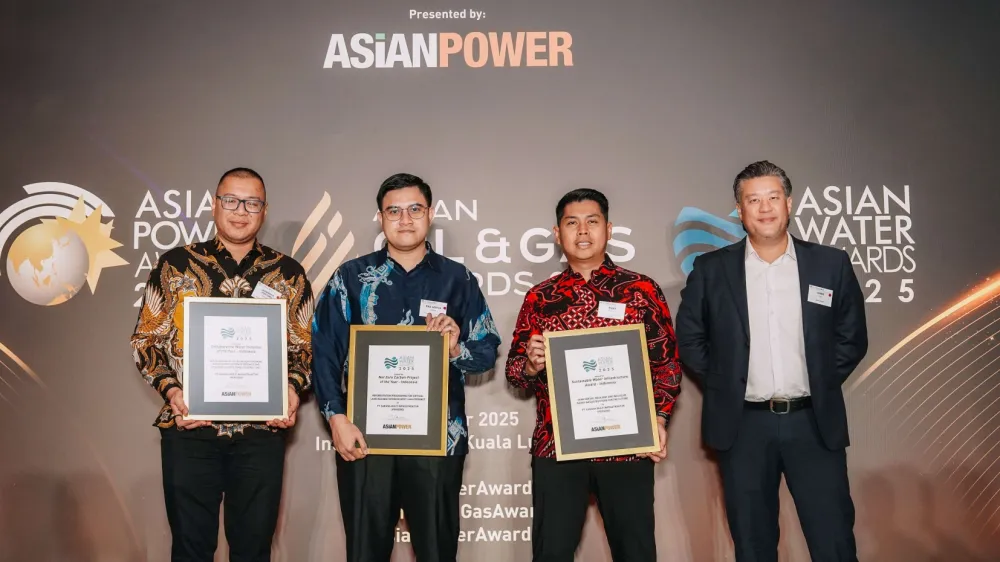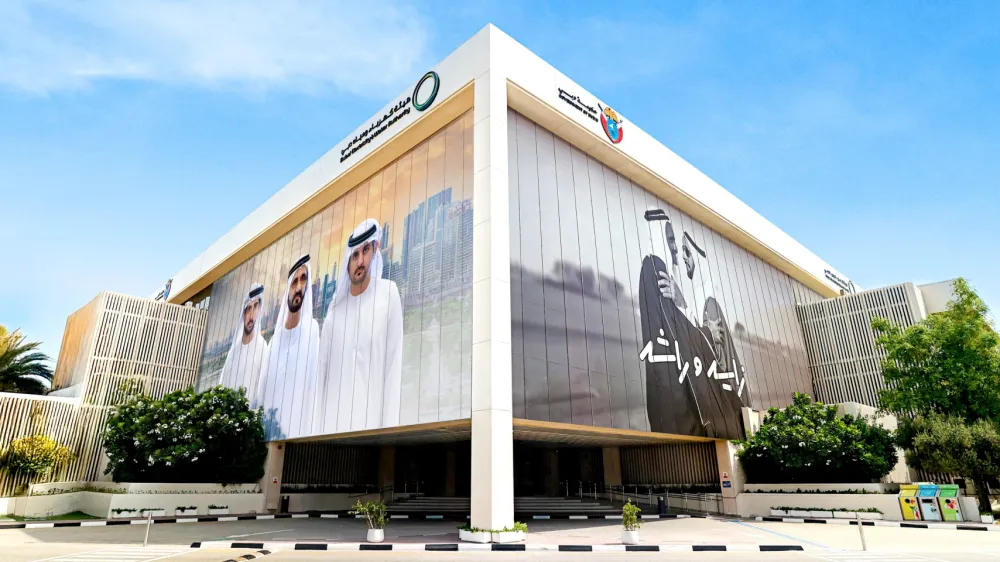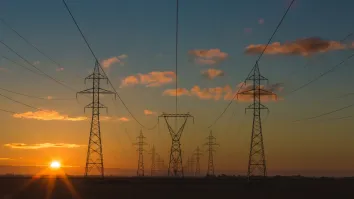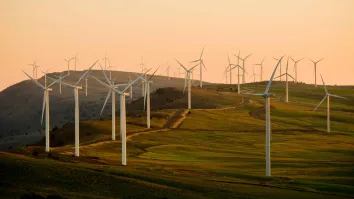
Energy transition to create biggest commercial opportunity for sector players
Need for businesses and academe to come together to prepare future leaders.
Sanjeev Gupta is the Asia-Pacific Oil & Gas Leader and Asean Energy Market Segment Leader at EY. He is also Partner, Strategy and Transactions, and has led over 400 transactions worth over US$350b across the world.
Based in Singapore, Gupta advises EY clients across the region, with a focus on the oil and gas and the broader energy sector that includes metals and mining, power and utilities, and renewables and chemicals.
Over his 28 years of professional experience, he has lived and worked in diverse markets including Indonesia, New Zealand, Australia, United Arab Emirates, Saudi Arabia, and India and has visited more than 130 countries whilst serving clients across the globe.
He has rendered assurance, advisory and consulting services on complex projects to energy players, supermajors, national oil companies, large Independents, and other corporations operating in the energy industry. These projects cover upstream, midstream, downstream, oil field services, trading, marketing, treasury, shipping, logistics, and storage in the value chain.
The Asian Power invited him to be part of the Asian Oil & Gas Awards judges’ panel. In a short interview, he spoke about his career as an oil and gas specialist, how exposure to diverse cultures has enabled growth in his career, and the shift needed in business and academia to prepare as the sector progresses to a new and exciting phase.
From being a chartered accounting professional, how did you build a career that focused on energy, particularly oil and gas? What other skills or knowledge did you acquire to specialise in the oil and gas industry?
My association with the energy industry began when I started my career with EY in Saudi Arabia, the largest producer of crude oil in the world, close to 30 years ago. My first client was an oil major, and I had to quickly learn the fundamentals of the oil and gas value chain. It was a highly enriching and valuable experience as our scope encompassed a review of their integrated operations across the full value chain, from upstream to midstream to downstream (refinery, petrochemicals) through to marketing.
This provided me with a great opportunity to learn end-to-end operations within the oil and gas value chain. I then relocated and moved on to work on other projects, but the great experience working with the oil major has stayed with me since as I continued to serve the broader energy sector.
In my work with the oil and gas sector, I have rendered assurance, consulting, and strategy services on several complex energy projects across the value chain. I have led over 400 complex cross-border transactions in the global markets. I’ve also lived and worked in six countries, including India, Saudi Arabia, United Arab Emirates, New Zealand, Indonesia and Singapore, and a substantial portion of my client portfolio include those in the oil and gas and the broader energy segments.
The energy sector is the lifeblood for the growth and development of many industries; its dynamic nature that continuously provides opportunities; and the global and scalable nature of the industry are some of the factors that draw me to the industry.
You’ve built quite an illustrious career. What experiences strongly impacted your career journey?
Throughout my career, I have had the chance to work with people from a multitude of cultures and contribute my skills internationally. This allowed me to build a strong industry network and expand my horizons to better serve my clients. I’ve embraced change, been open to different perspectives, and immersed myself in any learning opportunities presented to me.
More importantly, I cherish the opportunities to exchange insights with industry players and the broader business community to bring energy issues to light and to work toward resolving challenges that the sector faces. Now, the oil and gas sector is working to transform amid an evolving landscape. With evolving energy demand and pricing outlooks transforming the industry, yet few companies have fully harnessed the power of digitalisation, the sector needs new business models, rationalised portfolios accelerated investment in digital technologies and greater capital flexibility.
At EY, our purpose is Building a better working world, and I am glad to be doing my part to help the sector create efficiencies now while transforming for long-term growth in a new energy world.
As an industry leader, what can you advise the future leaders who want to pursue a finance career in the oil and gas industry?
Many oil and gas majors are working toward switching to alternative energy sources as the industry transitions from conventional fossil fuels to renewables. This energy transition journey will provide tremendous opportunities for the energy sector. According to Powering ASEAN’s Energy Transition by the EU-ASEAN Business Council, energy transition in the oil and gas sector can bring ASEAN countries economic opportunities of up to 20% of GDP. As oil and gas players seek to provide clean energy for consumers, they are also seizing growth opportunities that come with energy transition. I would advise current and future leaders of the oil and gas sector to embrace the changing facets of the industry value chain and focus on new learnings to pursue growth.
Technology is transforming industries such as banking and retail shopping. How is technology disrupting the energy sector, particularly oil and gas?
The convergence of digital, cloud computing and the new normal in oil prices has positioned the oil and gas industry for a massive transformation. Given the scale of oil and gas operations, incremental improvements can have a tremendous impact. This has been demonstrated by oil and gas companies leveraging advances in digital technology across the value chain, and there is potential for a greater impact in the following areas:
Data-driven decisions: Big data, analytical platforms, and artificial intelligence (AI) are converging to analyze data in ways not possible until now. These sophisticated data insights can help oil and gas companies increase operational efficiency by innovating the maintenance of assets, identifying better areas to drill, decreasing unplanned downtime, and optimising production.
Industrial Internet of Things (IIoT): Intelligent asset management allows companies to benefit from automated monitoring and diagnostics by connecting field assets and equipment to the IIoT platform with smart sensors. Companies can build real-time insights, operations and processes, such as helping to optimise equipment utilisation and maintenance planning.
Intelligent automation: Businesses have been using intelligent automation and robotic process automation (RPA) to automate human processing. By adding the power of AI to RPA, they can employ critical thinking, analytical models and quality improvements to automate various functions across the organisation.
Blockchain: Blockchain solutions can help to improve accuracy and reduce governance efforts in complex processes, such as commodity trading, materials movement and tracking of assets. Blockchain can also be used together with the IIoT platform to track the history of devices and enhance security.
According to the EY Oil and Gas Digital Transformation and the Workforce Survey 2020, 58% of respondents said the pandemic has made investing in digital technology more urgent. The cost savings that digital can deliver for organisations are critical for survival, as oil and gas companies seek to gain greater operational efficiencies and drive productivity across the value chain.
To capture the full value of these investments, oil and gas companies need the skills to harness technology to automate processes and uncover deep operational insights. The industry needs to create an environment that attracts digitally focused talent of the future. This is an ambitious undertaking that requires a full business transformation.
Your career has allowed you to travel extensively. Can you share your favourite places or best experiences while on travel?
My work has brought me to over 130 countries, while I’ve lived and worked in six different countries. Every place I’ve visited has its own uniqueness, and each allowed me to gain exposure to diverse cultures, ethnicities, and business environments, which has been enriching, to say the least.
How can the academe transform to prepare future accounting and finance professionals in the oil and gas industry to be more competitive in a digital future?
The energy transition is creating the greatest commercial opportunity of our age. The alternative energy value chain carries substantial opportunities – the key for corporates operating in the sector is to understand the role they want to play. Energy transition will cause a massive value shift in the energy value chain and is leading to the emergence of new value pools. Customer behaviour will play an important role in driving the shift to a sustainable energy future.
To prepare for a new energy world and the new energy consumer, energy companies will need to follow the value shift and consider diversifying into new value pools. They will also need to shift from a business-to-business mindset to a customer-centric one. This significant change in the industry provides constructive challenges for professionals to continually grow, including those in accounting and finance.
The academe must take into account this transition, and better prepare accounting and finance professionals in the future digital world.



















 Advertise
Advertise







